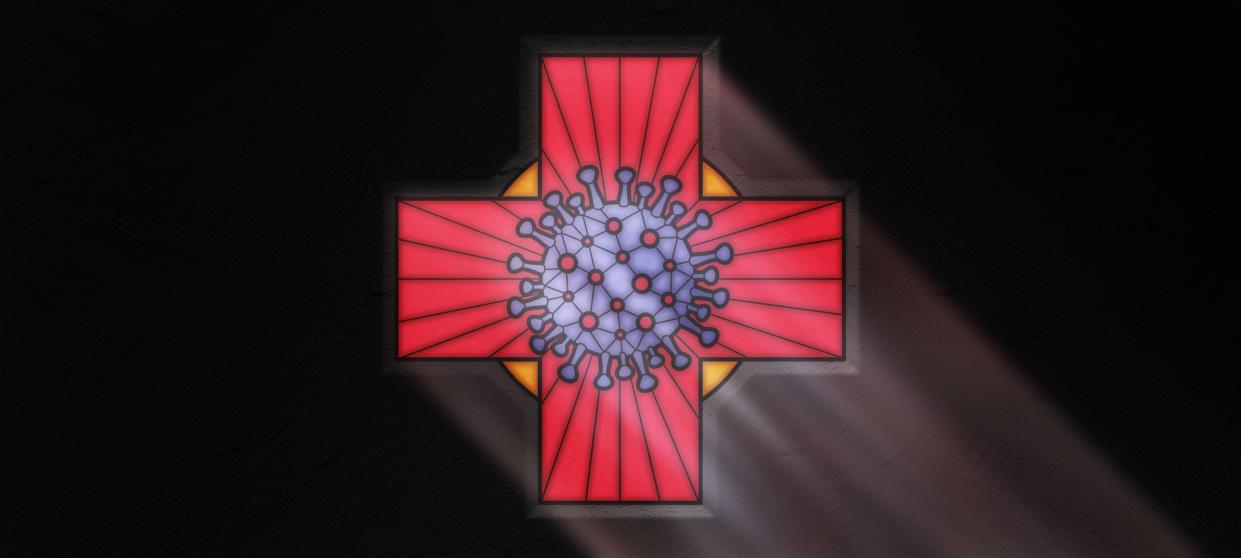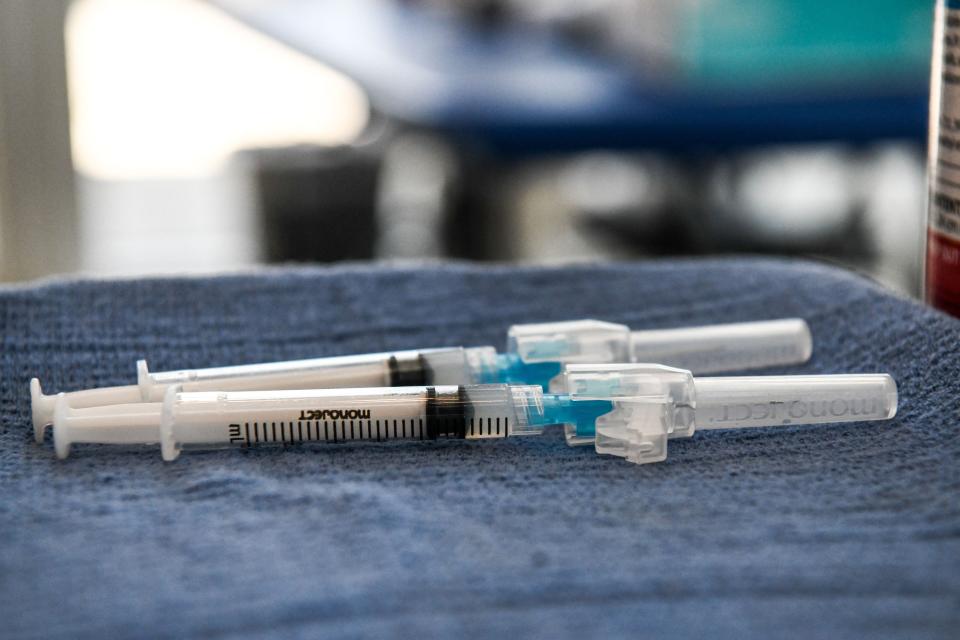Some evangelicals spread falsehoods about COVID vaccines while the world is desperate

- Oops!Something went wrong.Please try again later.
On a recent call with more than a dozen global evangelical leaders, and after hearing reports from an Indian leader, I mentioned that one of my recent social media posts on vaccines had provoked a strong (and mostly negative) reaction. One of the leaders on the call echoed the view of the group: He couldn't understand the attitude among Christians.
Neither can I.
The idea that some evangelicals are spreading misinformation about the vaccines while the majority of the world is desperate for them is hard to understand. Yet, we have to understand it to address it. Evangelical Christians need to be part of the solution, not part of the problem, as we all work to end the greatest global crisis of our lifetime.
Misinformation could prolong the pandemic
We know that most people of all faiths (and of no faith) are planning on being vaccinated. However, a sizable minority of U.S. Christians have fallen into misinformation that could, indeed, prolong the pandemic here in the United States and around the world. Not every single concern is unwarranted, but many come from misinformation or misunderstanding.
Put simply, it is time for evangelicals to get their facts on the vax.

In a recent study by the Ad Council in partnership with the National Association of Evangelicals, a majority of evangelicals (57%) were found to have taken or intend to take the vaccine. While encouraging, this lagged behind the over three-quarters (77%) of nonevangelicals. Moreover, white evangelicals were twice as likely than evangelicals of color to rule out the vaccine entirely (30% to 15%).
In the face of growing hesitancy, we evangelicals need to talk – and tell the truth – to one another. A great place to start for Christians seeking to combat vaccine hesitancy is in the wealth of information testifying to the safety of vaccinations.
We know that people listen more readily to people like them, even when it is uncomfortable. We need to help overcome this vaccine hesitancy for our own good, and for the good of our neighbors.
While conspiracy theories grab attention, there are thousands of quality resources available for Christians who honestly want answers to tough questions. These resources are not likely to convince true conspiracy believers, but it might help the unsure and uncertain to believe their doctor (and maybe their pastor).
Beyond trusting medical expertise, evangelicals need to hear that vaccine hesitancy runs contrary not only to the consensus of medical professionals, but also among their movement’s leaders. Even leaders who traditionally have, at times, had public disagreements with one another have united around the importance of vaccinations.
In a high-profile example, Franklin Graham pointed to the parable of the Good Samaritan as evidence that he believed Christ would get the vaccine. Going further, Graham reflected on the suffering caused by the pandemic he had witnessed firsthand before imploring Christians to talk with their doctors and get vaccinated.
Similar statements have poured out from other evangelicals, including Robert Jeffress, National Association of Evangelical Chairman John Jenkins and Southern Baptist President J.D. Greear. The unified voice of church leaders is calling for Christians to trust their doctors.
COVID vaccine: If you saw my COVID patients, you'd know we're still in danger. Don't be a vaccine straggler.
At the Wheaton College Billy Graham Center, we have partnered with the Centers for Disease Control and Prevention to answer commonly asked questions about the vaccines, talked to three globally known vaccine experts who are also evangelical Christians, and have encouraged pastors to lead and encourage their congregations to get vaccinated. Most recently, we’ve published a globally known epidemiologist (who is also, as she describes herself, a pastor’s wife), encouraging the same.
The question for evangelicals will be whether they put more weight to their social media feeds or to their own doctors and the leaders of their faith tradition. But it has to start with leaders giving that encouragement.
Love in the time of coronavirus
Nearly every denomination agrees that loving your neighbor lies at the heart of the Christian faith. The Protestant Reformer Martin Luther said it best, arguing that “a Christian lives not in himself, but in Christ and in his neighbor. Otherwise, he is not a Christian.” Denying ourselves is woven through the fabric of the Christian faith; it is the persistent and unyielding calling to love others even at our determent.
Despite this importance, discerning how to love your neighbor can be more difficult than it appears. Indeed, this has been one of the defining challenges for Christians during COVID-19. Pastors and church leaders have struggled at times – and even been at odds with one another – over this question.
COVID and masks: For people like my mom, there may never be a post-COVID era free of masks and worry
In his letter to the Galatians, the Apostle Paul details at length how faith in Christ frees us from sin, guilt and shame. Yet he cautions his readers that even in this freedom, the calling on Christians is not to use their freedom as an opportunity for doing wrong "but through love serve one another.” (Galatians 5:13) Cutting through the webs of misinformation and politicization, vaccines are a clear opportunity for Christians to live this calling out. We have a safe medical option, recommended by experts (and supported by religious leaders) that will contribute to the holistic health of our community. In essence, we have an opportunity to serve one another. We can protect ourselves and love our neighbors.
Let’s get the medical, practical and theological facts about the vax. And let’s lead in the fight against misinformation.
Ed Stetzer is a dean and professor at Wheaton College, where he also leads the Wheaton College Billy Graham Center, where CoronaVirusAndTheChurch.com contains resources for Christians and churches. Follow him on Twitter: @edstetzer
You can read diverse opinions from our Board of Contributors and other writers on the Opinion front page, on Twitter @usatodayopinion and in our daily Opinion newsletter. To respond to a column, submit a comment to letters@usatoday.com.
This article originally appeared on USA TODAY: Christians need to get the COVID-19 vaccine

